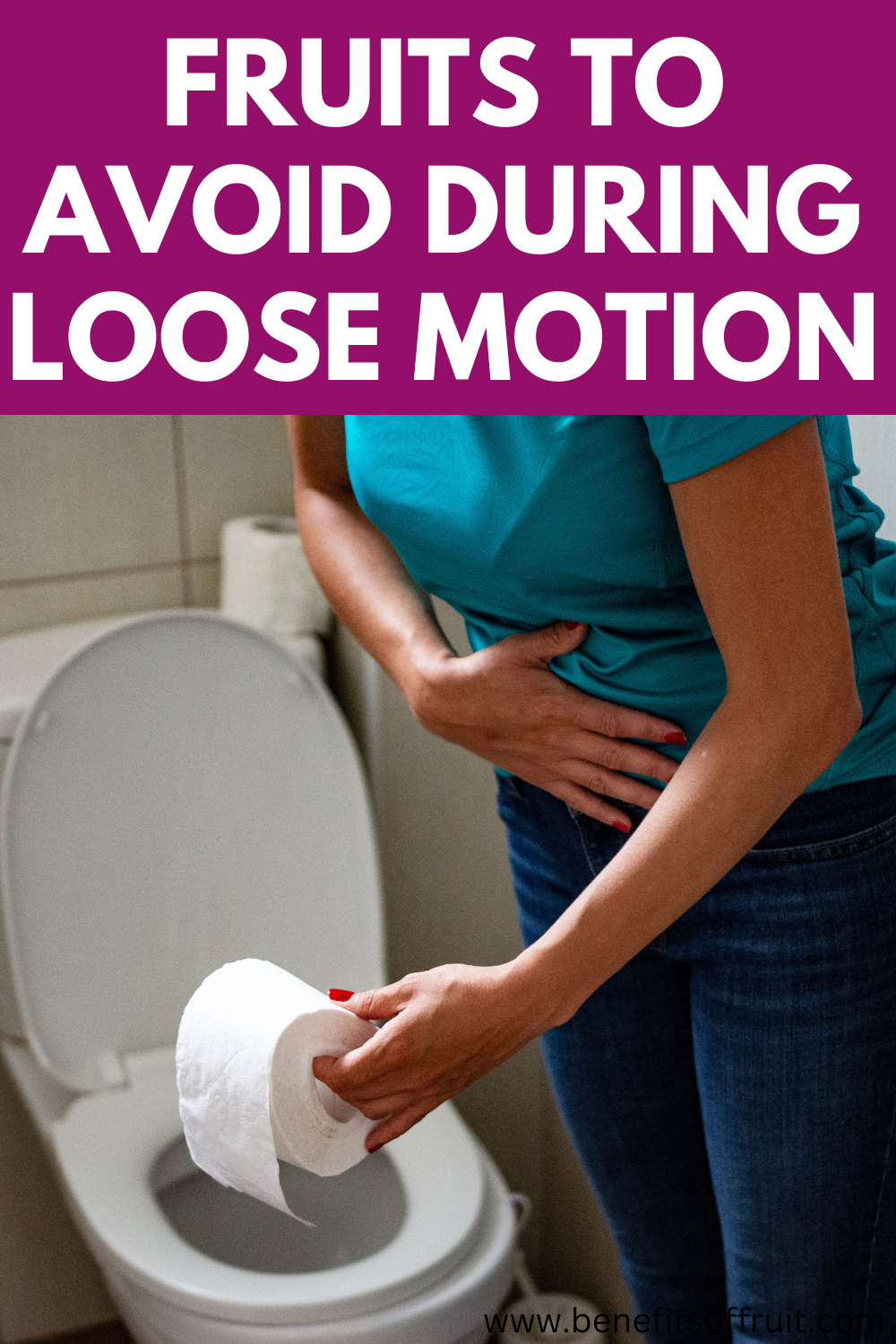Loose motion, also known as diarrhea, is a common condition characterized by frequent, loose, and watery bowel movements. It can be caused by various factors such as infections, food intolerances, stress, or reactions to medication. The condition can lead to dehydration and nutrient loss, making it essential to manage symptoms effectively. While managing loose motion, diet plays a crucial role in either alleviating or worsening symptoms. In this comprehensive guide, we’ll delve into the fruits you should avoid during loose motion and why, ensuring you have the knowledge to make informed dietary choices.
Fruits To Avoid During Loose Motion
Why Certain Fruits Should Be Avoided? Fruits are generally a healthy addition to our diet, offering a range of essential vitamins, minerals, and dietary fiber. However, during loose motion, certain fruits can exacerbate symptoms due to their high fiber content, natural sugar levels, or acidic nature. High-fiber fruits can cause further irritation to the digestive tract, while those with high sugar levels can draw water into the intestines, worsening dehydration. Understanding which fruits to avoid and why can help you manage your symptoms more effectively.
Fruits High in Fiber to Avoid
Pineapple Pineapple is a tropical fruit known for its vibrant flavor and versatility. It contains dietary fiber and bromelain, an enzyme that aids in protein digestion. While generally healthy, the high fiber content and bromelain in pineapple can irritate the digestive system, particularly in those experiencing loose motion. The insoluble fiber can increase stool bulk, worsening diarrhea. Additionally, bromelain can act as an irritant to sensitive digestive tracts, making pineapple best avoided during loose motion.
Apple (Unpeeled) Apples, especially with the peel on, are high in insoluble fiber. This type of fiber adds bulk to the stool and can speed up the movement of material through the digestive system. While apples can be beneficial for constipation due to this effect, they can exacerbate loose motion by increasing stool bulk and frequency. Peeled apples, on the other hand, have lower fiber content and may be better tolerated. The natural sugars in apples can also draw water into the intestines, further aggravating symptoms.
Fruits with High Sugar Content
Mango Mangoes are loved for their sweet, juicy flesh and are packed with vitamins and antioxidants. However, they contain high amounts of fructose and sorbitol, both of which can have a laxative effect on the body. Fructose is known to cause gastrointestinal issues in people with fructose malabsorption, and sorbitol, a sugar alcohol, can draw water into the intestines. This osmotic effect can lead to further dehydration and worsen loose motion. Therefore, it’s advisable to avoid mangoes if you’re suffering from diarrhea.
Grapes Grapes are popular for their sweet flavor and versatility. However, they are high in natural sugars and contain fiber, which can make them problematic during loose motion. The sugars in grapes can draw water into the intestines, worsening dehydration, while the fiber can increase stool bulk and frequency. These effects make grapes a fruit to avoid during diarrhea to prevent aggravating symptoms.
Citrus Fruits
Oranges and Grapefruits Citrus fruits like oranges and grapefruits are known for their high vitamin C content and refreshing taste. However, they also contain high levels of acidity and fiber, which can irritate the stomach lining and exacerbate loose motion. The acidity can further disturb the stomach’s natural pH balance, leading to increased gastrointestinal discomfort. For this reason, it’s best to avoid citrus fruits like oranges and grapefruits during bouts of diarrhea.
Dried Fruits
Raisins, Dates, and Prunes Dried fruits such as raisins, dates, and prunes are concentrated sources of natural sugars and dietary fiber. These fruits are known for their laxative properties, which can be beneficial in cases of constipation. However, during loose motion, the high fiber and sugar content in dried fruits can worsen symptoms by further irritating the digestive tract and increasing stool frequency. The concentrated sugars can also draw water into the intestines, leading to further dehydration. Therefore, it’s advisable to avoid dried fruits until symptoms improve.
Fruits with Excess Sorbitol
Pears and Plums Pears and plums are high in sorbitol, a sugar alcohol known for its osmotic laxative effect. Sorbitol draws water into the intestines, which can worsen loose motion by increasing stool frequency and leading to further dehydration. In addition, the fiber content in these fruits can contribute to increased stool bulk. To prevent worsening symptoms, it’s best to avoid pears and plums until the digestive system stabilizes.
Safer Alternatives
While managing loose motion, it’s important to choose foods that are easy to digest and gentle on the stomach. Here are some fruits that are generally safer to consume:
Bananas Bananas are a popular choice for people with digestive issues due to their low fiber content and natural pectin, which can help absorb excess water in the intestines. They are also rich in potassium, which helps replace electrolytes lost due to diarrhea.
Avocados Avocados are low in sugar and contain healthy fats that can be soothing to the digestive tract. They are also rich in potassium, which can help replenish electrolytes.
Papayas Papayas contain digestive enzymes like papain, which can aid in digestion. They are also low in fiber and can be soothing to the stomach.
Conclusion
Managing loose motion requires careful dietary choices, as certain foods can either alleviate or worsen symptoms. Fruits like pineapple, unpeeled apples, mangoes, grapes, citrus fruits, dried fruits, and those high in sorbitol should be avoided due to their potential to irritate the digestive tract, increase stool frequency, or cause dehydration. Opting for safer alternatives like bananas, avocados, and papayas can help manage symptoms more effectively. However, it’s always best to consult with a healthcare professional for personalized advice to ensure proper management of your condition.
